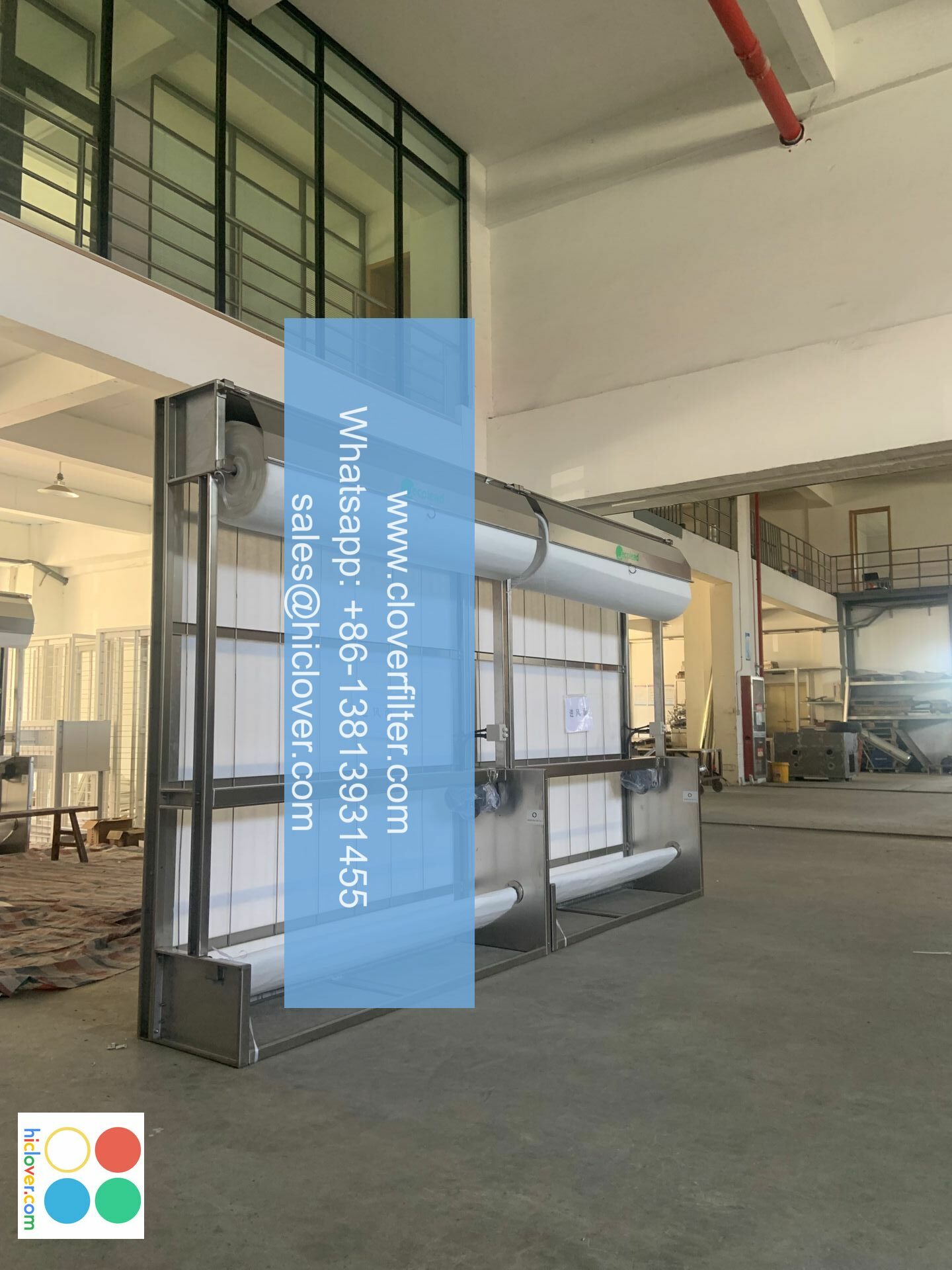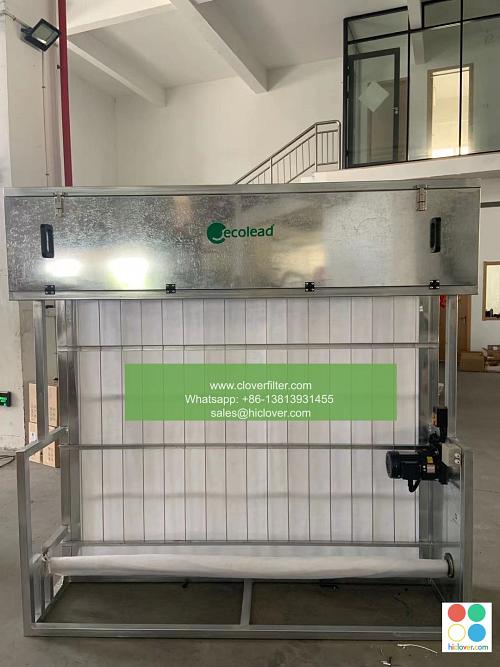Calgary Food Workshop: Best Practices for Implementing Automatic Roll Air Filters

The Calgary Food Workshop is a premier event that brings together food industry professionals to share best practices and discuss the latest trends in food safety and quality. One of the key topics discussed at the workshop was the implementation of automatic roll air filters in food processing facilities. In this article, we will explore the best practices for implementing automatic roll air filters and how they can benefit food processing operations.
Automatic roll air filters are designed to capture airborne contaminants, such as dust, pollen, and other particles, and replace traditional filter systems that require manual intervention. These filters are particularly useful in food processing facilities where air quality is critical to maintaining a clean and safe environment. By installing automatic roll air filters, food processors can improve air quality, reduce maintenance costs, and increase overall efficiency.
One of the key benefits of automatic roll air filters is their ability to capture airborne contaminants with high efficiency. These filters are designed to capture particles as small as 0.3 microns, which is smaller than the size of most bacteria and viruses. By capturing these contaminants, automatic roll air filters can help prevent the spread of airborne illnesses and reduce the risk of contamination in food products. Additionally, these filters can help reduce the amount of dust and other particles that can accumulate on food products and equipment, making cleaning and sanitation easier and more effective.
Another benefit of automatic roll air filters is their ability to reduce maintenance costs. Traditional filter systems require regular manual cleaning and replacement, which can be time-consuming and labor-intensive. Automatic roll air filters, on the other hand, are designed to automatically roll out new filter media as needed, eliminating the need for manual intervention. This can result in significant cost savings over time, as well as reduced downtime and increased productivity.
When implementing automatic roll air filters, there are several best practices to keep in mind. First, it is essential to select a filter system that is designed for use in food processing facilities. These systems should be made from materials that are easy to clean and sanitize, and should be designed to withstand the humid and dusty conditions often found in food processing environments. Additionally, the filter system should be installed in a location where it can effectively capture airborne contaminants, such as near food processing equipment or in areas where food products are handled.
It is also crucial to follow proper installation and maintenance procedures when implementing automatic roll air filters. This includes ensuring that the filter system is properly sized for the facility, and that it is installed and maintained according to the manufacturer’s instructions. Regular maintenance, such as checking and replacing the filter media as needed, is also essential to ensure that the filter system continues to operate effectively over time.
In addition to the benefits and best practices mentioned above, automatic roll air filters can also help food processors meet regulatory requirements and industry standards. For example, the USDA’s Food Safety and Inspection Service (FSIS) requires that food processing facilities maintain a clean and sanitary environment, and that they take steps to prevent the spread of airborne contaminants. By installing automatic roll air filters, food processors can demonstrate their commitment to food safety and quality, and can help ensure compliance with regulatory requirements and industry standards.
In conclusion, automatic roll air filters are a valuable tool for food processing facilities, offering improved air quality, reduced maintenance costs, and increased efficiency. By following best practices for implementation and maintenance, food processors can maximize the benefits of these filters and help ensure a clean and safe environment for food production. Whether you are a seasoned food industry professional or just starting out, the Calgary Food Workshop is a great resource for learning more about automatic roll air filters and other topics related to food safety and quality.
Conclusion: The implementation of automatic roll air filters is a simple and effective way to improve air quality and reduce maintenance costs in food processing facilities. By following best practices for implementation and maintenance, food processors can maximize the benefits of these filters and help ensure a clean and safe environment for food production.
Frequently Asked Questions (FAQs)
- Q: What are automatic roll air filters, and how do they work? A: Automatic roll air filters are designed to capture airborne contaminants, such as dust, pollen, and other particles, and replace traditional filter systems that require manual intervention. They work by automatically rolling out new filter media as needed, eliminating the need for manual cleaning and replacement.
- Q: What are the benefits of using automatic roll air filters in food processing facilities? A: The benefits of using automatic roll air filters in food processing facilities include improved air quality, reduced maintenance costs, and increased efficiency. They can also help prevent the spread of airborne illnesses and reduce the risk of contamination in food products.
- Q: How do I select the right automatic roll air filter system for my food processing facility? A: When selecting an automatic roll air filter system, consider factors such as the size of the facility, the type of food products being processed, and the level of air quality required. It is also essential to select a system that is designed for use in food processing facilities and is made from materials that are easy to clean and sanitize.
- Q: How often should I maintain my automatic roll air filter system? A: Regular maintenance is essential to ensure that the automatic roll air filter system continues to operate effectively over time. This includes checking and replacing the filter media as needed, as well as following the manufacturer’s instructions for installation and maintenance.


